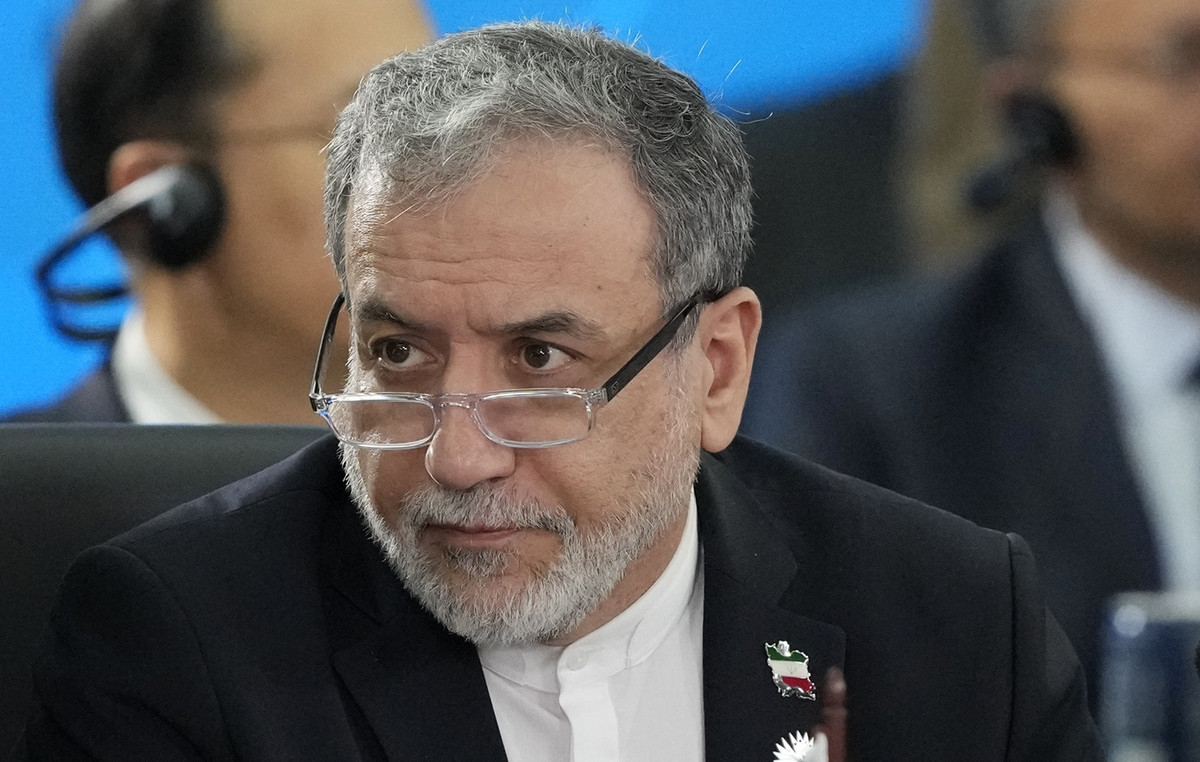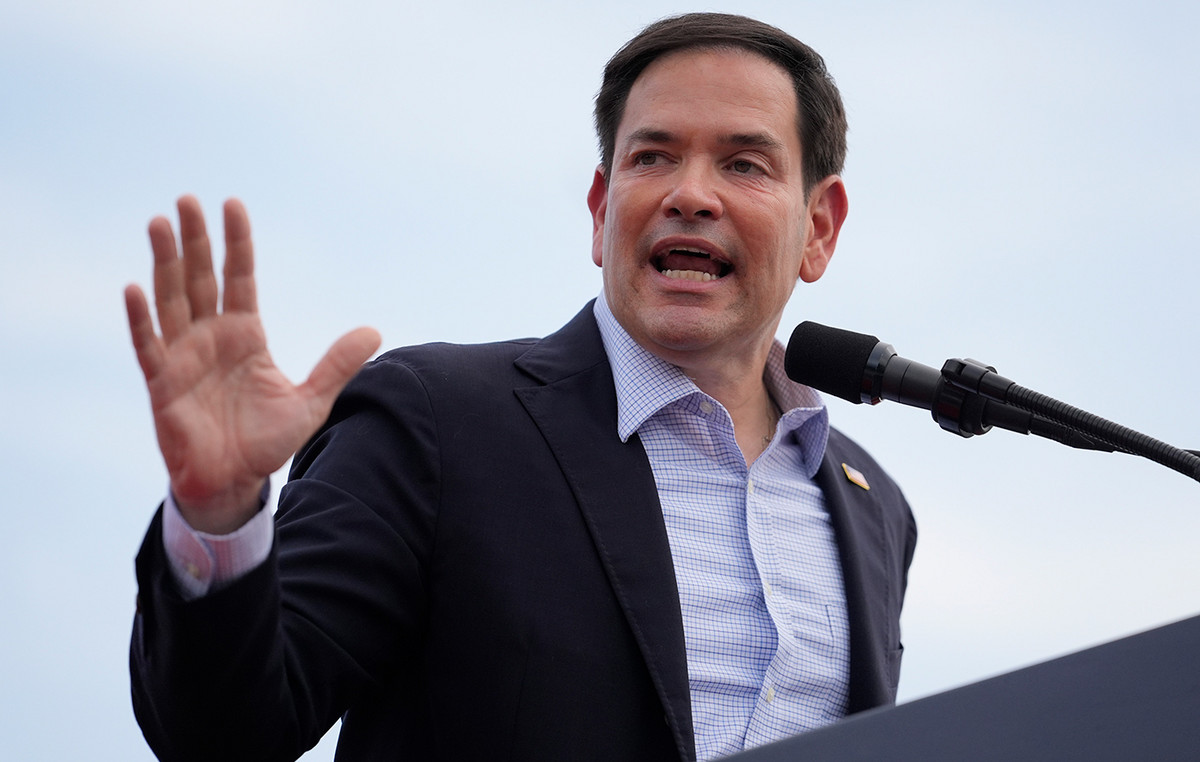The federal government announced, on Thursday (10), that it will re-bid the Tom Jobim International Airport, Galeão, next to Santos Dumont Airport, in 2023.
The announcement came after the Singapore concessionaire Changi Airportwhich manages the airport and has 51% of its capital, declare that it will return the terminal concession due to the “bad Brazilian economic situation since 2014”.
Despite the withdrawal notice, the operator will remain in charge until the new bidding process.
After the decision, Galeão was withdrawn by the federal government from the seventh round of airport concessions, scheduled to take place until June this year. The terminal is now scheduled to be tendered at Santos Dumont Airport next year.
This means that a single company, which will be the winner of the auction, will operate the two airports in Rio de Janeiro.
“As we are creating an eighth round, we will now have the same operator for Galeão and Santos Dumont. This resolves a series of issues and removes a series of concerns that were being expressed by the productive sector in Rio. The discussion about whether an airport competes with another no longer makes sense”, said the Minister of Infrastructure, Tarcísio Gomes de Freitas in a speech. done the day before.
experts heard by CNN Brasil Business say that the return by the concessionaire was something predictable, but opinions are divided on the joint bidding.
Salvation
For Manoel Ferreira, director of Dix Empreendimentos, the tender for Galeão airport with Santos Dumont is essential for its survival, since the terminal has modeling problems and bears high costs.
“It is necessary to bid for both airports together, so as not to end up burying Galeão. With the same administrator, it will be better to organize the flow of the two terminals”, she said.
“It was made in an old model, still in the Dilma government. It is an airport that does not have payback (an indicator of the payback time of an investment), there is no flow and it still has a very high cost, so the operator chose to return it”, he added.
Ferreira also says that, before being impacted by the pandemic, Galeão was already suffering the consequences of an economic crisis that Brazil has been going through for a few years, which was already affecting the demand for international flights.
In addition, according to him, competition ends up not being fair, as residents of Rio de Janeiro and other travelers end up choosing Santos Dumont for domestic trips because of its location, among other issues.
“It’s the same situation in Congonhas and Guarulhos, in São Paulo, and Confins and Pampulha, in Minas Gerais. Urban airports end up gaining preference on domestic flights, so when those with the infrastructure to receive international flights experience problems on this type of flight, they end up adrift,” he explained.
Monopoly
Galeão was granted to the private sector in 2012. At that time, around 17 million people circulated through the airport, which gave it the second position in the number of travelers.
However, last year, only 3.2 million passengers circulated through the terminal, a number that placed it in 11th place in the list of busiest airports in Brazil.
The tender together with Santos Dumont Airport is understood by experts as a response from the federal government to the private sector and the government of Rio de Janeiro, which fear that, with the Santos Dumont concession, a process of “cannibalism” will occur. in the capital of Rio de Janeiro and Galeão empties even more.
However, the director of FGV Transportes, Marcus Quintella, stated that granting the same company the management of two airports could transform the sector into a monopoly in Rio de Janeiro, ending the competition established by the airline market.
“I believe that as the minister [da Infraestrutura] he took will become provisional, it was a situation in which he had to give an answer to society after the concession was returned”, he said.
“It was a return that meets the wishes of the government and the city hall of Rio de Janeiro, who believe that Galeão would be harmed by the Santos Dumont concession. But the new decision to do joint bidding creates a monopoly, something that is not healthy in any free market economy,” he continued.
According to the professor, if the same administrator takes over both terminals, this should generate accommodation in the provision of services and increase in airport prices.
“It is not healthy to grant this monopoly. Galeão’s problem is not Suntos Dumont, it is a result of the economic crisis that started in 2014 and was aggravated by the pandemic, which was not in the risk matrix of the beginning of the airport project concession ”, he said.
Quintella declared that, in addition to the drop in demand for international travel, Rio de Janeiro no longer has as much attractiveness to leverage tourism in the region.
“Rio today faces very serious public security problems, it is unable to attract high-quality tourism because for that it is necessary to have a systemic security service in all areas. This is all reversed in profit or loss for the international airport, it has always been that way,” she said.
Finally, the professor stressed that the solution taken by the Ministry of Infrastructure is not ideal, and drew attention to the problems that the decision to make a joint concession next year may cause.
“The government passed this problem on to the next government, be it or not. The second half of 2023 is a long way off, there will not be any investors today doing financial modeling with the political and economic uncertainties that are on the table,” he concluded.
Upcoming concession rounds
The seventh round of airport concessions, which will no longer rely on Galeão, will put the administration of 15 airports into dispute, which will be organized into three blocks.
- SP/MS/PA/MG Block: Formed by the airports of Congonhas (SP), Campo Grande (MS), Corumbá (MS), Ponta Porã (MS), Santarém (PA), Marabá (PA), Carajás (PA), Altamira (PA), Uberlândia (MG ), Uberaba (MG) and Montes Claros (MG). The planned investment is R$ 5.889 billion. Initial grant: R$ 255 million.
- General Aviation Block: Integrated by the airports of Campo de Marte (SP) and Jacarepaguá, in Rio de Janeiro (RJ), the lot has R$ 560 million in planned investments. Initial grant: R$ 138 million.
- North Block II: Formed by the air terminals of Bélem (PA) and Macapá (AP), it has R$ 875 million in planned investments. Initial grant: R$ 57 million.
The eighth round, scheduled to take place next year, may have other airports besides Galeão and Santos Dumont.
The airports of São Gonçalo do Amarante, in Natal (RN), and Viracopos, in Campinas (SP), also undergo re-bidding processes.
Source: CNN Brasil
I am Sophia william, author of World Stock Market. I have a degree in journalism from the University of Missouri and I have worked as a reporter for several news websites. I have a passion for writing and informing people about the latest news and events happening in the world. I strive to be accurate and unbiased in my reporting, and I hope to provide readers with valuable information that they can use to make informed decisions.







